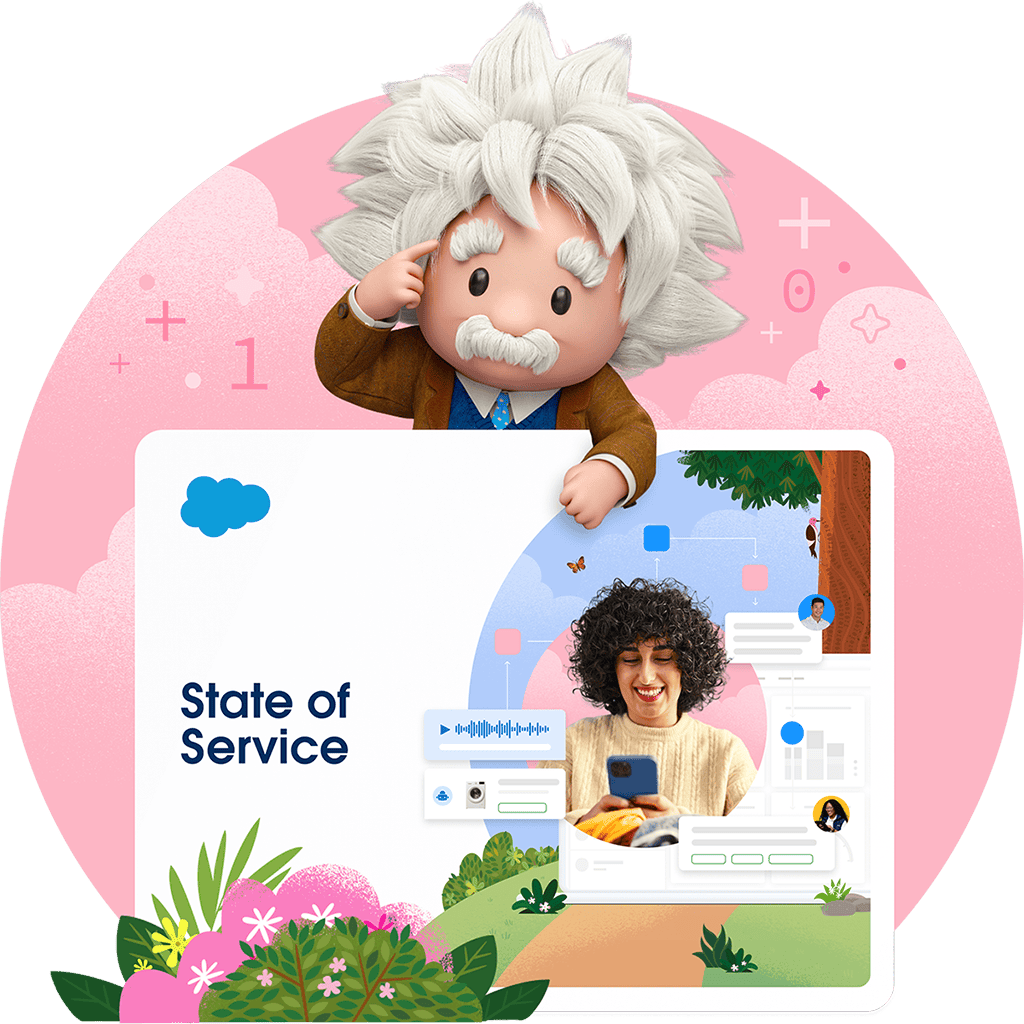
What is Knowledge Management? The Complete Guide
Top talent resigning? Here’s how knowledge management keeps their know-how from going with them, and how you can use this institutional intelligence to deliver great customer service.

Top talent resigning? Here’s how knowledge management keeps their know-how from going with them, and how you can use this institutional intelligence to deliver great customer service.


Knowledge management is the process of creating, organizing, sharing, and using knowledge within an organization to improve efficiency, decision-making, and overall performance. It’s all about making sure the right information is available to the right people at the right time.
Knowledge management involves capturing all relevant knowledge and then structuring and storing it in a way that makes it easy to find and use. Customer service software like Service Cloud helps with knowledge management by centralizing and organizing information — like FAQs, support articles, and past interactions — so reps and customers can quickly find accurate, consistent answers.
The goal of knowledge management is to reduce knowledge gaps, avoid reinventing the wheel, and help teams work smarter, not harder. It’s especially valuable in areas like customer service and field service, where fast access to accurate information directly impacts service quality and customer satisfaction.
A knowledge management system is a software platform or framework that lets organizations capture, organize, store, and retrieve knowledge and information. It helps facilitate knowledge sharing, collaboration, and decision-making within an organization, ultimately improving productivity and efficiency.
Knowledge management plays a critical role by ensuring that employees have easy access to accurate, up-to-date information when they need it most. For customer service teams, this means being able to quickly respond to inquiries with consistent and correct answers, which enhances the overall customer service experience and builds trust. In field service management, it enables technicians to resolve issues efficiently on-site by referencing technical documentation, service histories, or troubleshooting guides — minimizing repeat visits and downtime.
Beyond immediate issue resolution, effective knowledge management supports long-term efficiency and continuous improvement. It reduces training time for new employees by providing a centralized source of information, encourages knowledge sharing across teams, and helps identify trends or recurring problems. By capturing and using organizational knowledge, companies can improve service quality, increase customer satisfaction, and reduce operational costs — ultimately giving them a competitive edge.

Want to get the most out of digital labor? Our exclusive guide covers the best practices you need to know.
A knowledge manager is responsible for developing and implementing a comprehensivestrategy to capture, organize, and share information within an organization. They oversee the curation of content, ensuring it is accurate, up-to-date, and easily accessible, often working with subject matter experts to gather and validate information. They also select and implement the right knowledge management tools, such as knowledge bases and collaboration platforms, and provide training and ongoing support to employees to ensure effective use. In addition, they monitor the system's performance through key performance indicators (KPIs) and continuously make improvements to enhance user engagement and content quality. By fostering a culture of knowledge sharing and ensuring compliance with regulations, a knowledge manager helps drive productivity and improve service quality across the organization.
Before you begin documenting your institutional knowledge, it's important to understand the various types of information that customer service reps and field service technicians use when assisting customers. Here are a few key types of knowledge to consider:
Knowledge management offers several significant benefits for organizations:
By implementing a robust knowledge management system, organizations can create a more informed, efficient, and resilient workforce, ultimately driving better business outcomes.

It's an exclusive meeting place, just for service professionals. From customer service to field service, the Serviceblazer Community is where peers grow, learn, and celebrate everything service.
Here are some examples of knowledge management for customer service and field service:
Knowledge management isn’t a one-and-done process. It’s an ongoing strategy required for effective customer service operations. We recommend:
Getting started with knowledge management tools involves a few key steps to ensure that the process is smooth and effective:
By following these steps, you can effectively implement knowledge management tools that enhance productivity, improve service quality, and drive better outcomes for your organization.
The process involves creating, capturing, organizing, sharing, and maintaining knowledge to ensure it’s accessible and usable across the organization.
Knowledge management enables faster access to information, supports skill development, and fosters a collaborative work environment.
Ownership often lies with departments like IT, HR, or Operations, but it requires collaboration across teams to be effective.
AI agents enhance knowledge management by automating data organization, providing contextual recommendations, improving search precision, and delivering personalized knowledge in real time, empowering teams to work smarter and faster.
It aligns organizational knowledge with strategic goals, enabling informed decision-making, innovation, and a competitive edge.

High-performing service organizations are using data and AI to generate revenue while cutting costs — without sacrificing the customer experience. Find out how in the 6th edition of the State of Service report.